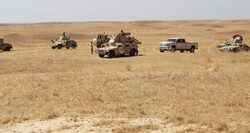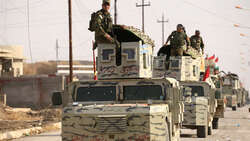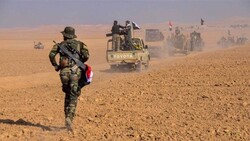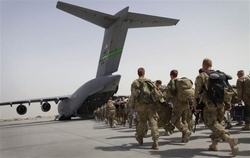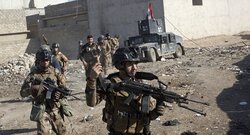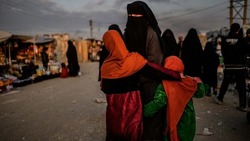ISIS is accumulating momentum near Baghdad's flank, local official warns
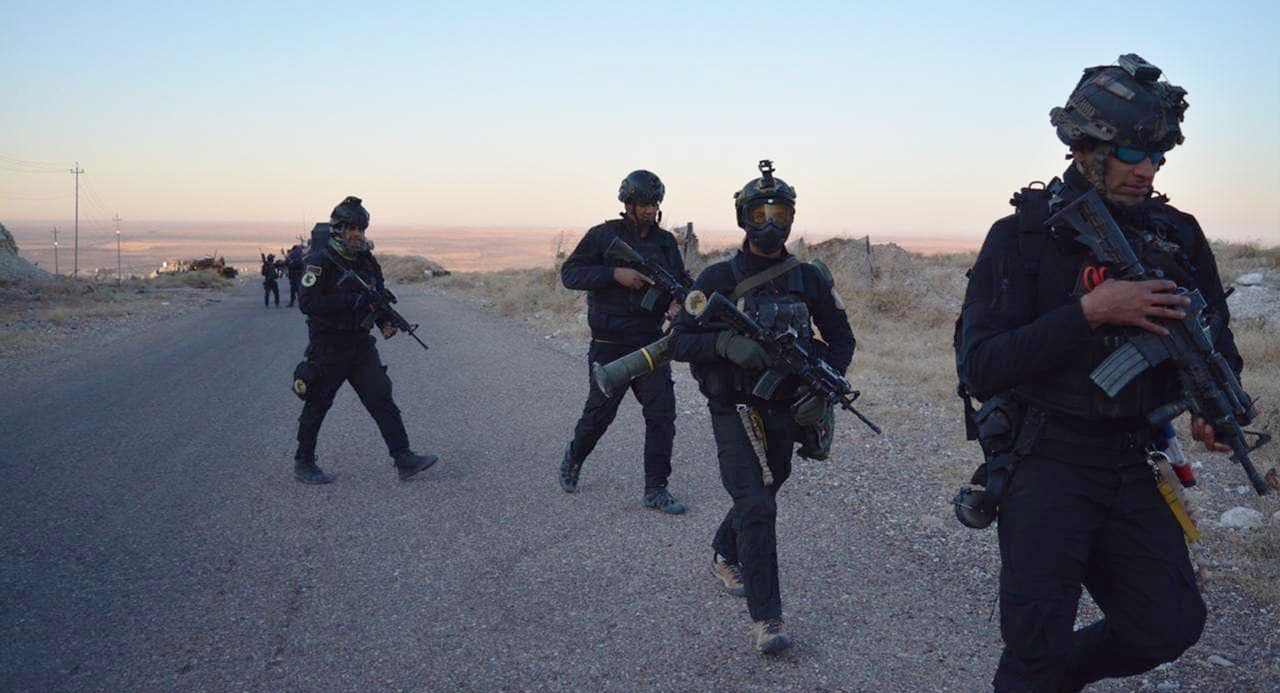
Shafaq News/ ISIS may be poised to recover operational capacity at the borders of Diyala with Baghdad amid worrisome movement of the extremist group's militants in dozens of abandoned villages in the area, a local official revealed on Thursday.
The administrator of Kanaan sub-district, Mahdi Abdul-Karim al-Shammari, told Shafaq News Agency, "the southern territories of Kanaan and Buhriz districts, southeast Baqubah, are ticking bombs that jeopardize the flank of Baghdad."
"ISIS militants heatmap is glowing as noticed recently with the increasing frequency of the attacks waged recently against the security forces stationed in the area," he explained, "more than 30 evacuated villages have become a safe haven for the terrorist groups."
Al-Shammari called for deploying advanced technology, including drones and long-range surveillance cameras, to "contain a growing threat to both Baghdad and Diyala at the same time."
ISIS has fallen far from its 2015 peak, when it was on the offensive against its many enemies and controlled a militant proto-state spanning Iraq and Syria. Faced with an overwhelming military campaign waged by an array of local and international foes, ISIS lost its last territorial foothold in Iraq in 2017 and in Syria in early 2019. In both countries, it has survived by shifting from semi-conventional warfare to hit-and-run insurgency.
In Iraq, the group operates as small, largely autonomous guerrilla units spread across the country’s most inhospitable terrain, including its mountains and deserts. From these hideouts, ISIS militants emerge to prey on rural areas, kidnapping and extorting residents and killing state representatives. The group’s operations are simple; it has only infrequently carried out more complex or large-scale attacks.
Iraq has changed in ways that might prevent ISIS from returning in force. The nationwide sectarian polarisation from which ISIS benefited has faded. Additionally, now that many Sunni Arabs have experienced the dual trauma of ISIS’s draconian control and the military campaign to recapture their home areas from ISIS, most want nothing more to do with the group. The Iraqi security forces, for their part, have curbed their excesses and forged a more functional relationship with Sunni Arabs.
Yet despite these reasons for optimism, there are also threats. Securing peripheral areas still bedevilled by ISIS will be a major challenge. The government has yet to rebuild and jump-start the economies of these and other areas that were damaged by the war against ISIS, discouraging the displaced from returning. Healing society’s wounds seems similarly difficult.
